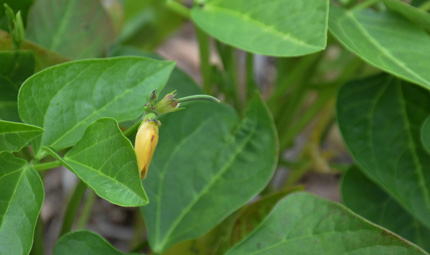Soil Science Society of America
5585 Guilford Road • Madison, WI 53711-5801 • 608-273-8080 • Fax 608-273-2021
www.soils.org
Twitter | Facebook
NEWS RELEASE
Contact: Hanna Jeske, Associate Director of Marketing and Brand Strategy, 608-268-3972, hjeske@sciencesocieties.org
2016 Named International Year of Pulses
December 17, 2015-The UN declared 2016 as the International Year of Pulses (IYP). And, no, they don’t mean the pulse you take to measure your heartbeat.
Pulses are edible grain legumes – think pinto, kidney, garbanzo, lentils, and peas. The UN Food and Agriculture Organization (FAO) wants the public to recognize tasty and nutritious pulses “as a primary source of protein, fiber, and other essential nutrients.” (http://www.fao.org/pulses-2016/en/)
The Crop Science Society of America (CSSA) plans to celebrate IYP in various ways. “We’ve asked several of our key scientists to publish papers about pulse research in our Crop Science journal during 2016,” shares Mark Brick, the chairperson of CSSA’s IYP committee. Brick is a professor at Colorado State University.
 CSSA also has created information for the general public about pulses, which can be found at www.crops.org/iyp.
CSSA also has created information for the general public about pulses, which can be found at www.crops.org/iyp.
“We want to increase awareness of the importance of beans and other pulse crops to human health,” says Henry Thompson, an IYP team member. Thompson has collaborated on research with Brick that supports the clinical evidence between higher bean consumption and a reduction in cancer risk. “Beans are high in fiber and protein, and have many healthy attributes,” says Thompson.
Besides eating more beans, CSSA encourages home gardeners to add some pulse crops to their garden beds. “Most pulses – like pinto beans and black eyed peas – can be grown in many U.S. locations,” says Matthew Blair. “In addition to being healthy to eat, pulses are ‘nitrogen fixers’ and are good for your garden’s soil.” Blair is a professor at Tennessee State University, and a member of the IYP team.
Other activities planned by CSSA include sending 10 graduate students to the PanAfrican Grain Legume Conference and World Cowpea Conference in Zambia in late February. CSSA offered these grants in collaboration with the U.S. Agency for International Development (USAID), and Feed the Future Knowledge-Driven Agricultural Development (KDAD).